On April 26, 2024, the online international seminar, part of the Shanghai Climate Week 2024’s series of events on climate change education, was successfully held. This seminar featured 9 experts from UN agencies, international non-profit organizations, civil society groups, and educational institutions, along with frontline educators and they shared their experiences in promoting climate change education with the public. The seminar attracted a total of over 1300 participants.

Ms. Miki Konishi
Programme Coordinator of Innovation and Education Programme at United Nations University Institute for the Advanced Study of Sustainability (UNU-IAS)
Theme: Climate change education: cases from UNU’s RCE global network on education for sustainable development


The successful promotion of climate action on the ground requires collaborative efforts from multiple stakeholders.
- Local governments, academic institutions, non-profit organizations, and businesses in the local area must all engage in sustainable development education. This collaboration facilitates the widespread adoption of interdisciplinary education models and enhances adaptability across various educational systems. In such multifaceted projects, to effectively promote and implement climate action, all parties should:Measures and actions for climate mitigation and adaptation should be contextualised.
- Identifying target people who are vulnerable to climate change and effective interventions.
- Establish multi-stakeholder partnerships to jointly address climate-related issues.
- Acknowledging and leveraging community-driven creatives and working with partners in different fields so as to achieve greater impact.
- Recognizing the power of education and lifelong learning in formal, non-formal and informal settings to inspire people to become change-makers and build sustainable communities.
Global RCE Network: https://www.rcenetwork.org/portal/
RCE suzhou:https://mp.weixin.qq.com/s/iKaRBOfMPcuyViRoY3vReQ

Ms. Gitanjali Sah
Strategy and Policy Coordinator of ITU, UN
Theme: Addressing Climate Change Challenges, an Educational Perspective from UN Processes of WSIS in Climate Change and Environment


Digital solutions are playing a comprehensive role in achieving sustainable development goals.
The WSIS (World Summit on the Information Society) is committed to integrating environmental and educational aspects into its framework. Through the participation of multiple stakeholders, WSIS promotes the sustainable development of digital solutions. The WSIS+20 Forum provides a crucial platform for stakeholders to discuss digital solutions, climate action, and environmental issues.
Furthermore, through e-education and the WSIS action plan, over 13,000 digital solutions are strengthened to enhance cross-sectoral digital cooperation. Efforts are directed towards improving the inclusivity and efficiency of digital governance, fostering global digital cooperation, and realizing holistic sustainable development.
WSIS Action Line: https://www.itu.int/net/wsis/stocktaking/help-action-lines.html

Dr. J.D. LaRock
CEO of Network for Teaching Entrepreneurship
Theme: Youth entrepreneurship-an accelerator for climate change education
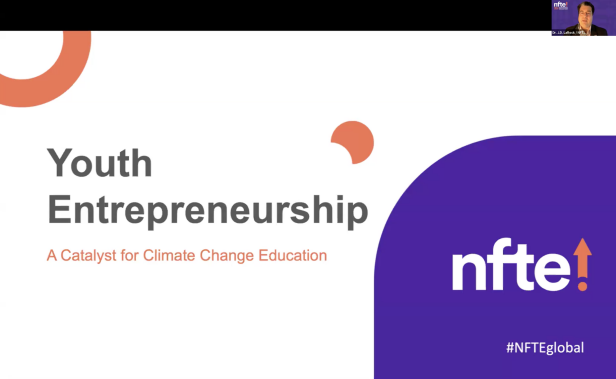

Entrepreneurship education for young people can be an effective catalyst for climate action
NFTE encourages young people to use entrepreneurial and business thinking to address climate change issues, teaching not only entrepreneurial skills but also encouraging innovation. Additionally, NFTE focuses on empowering students in difficult circumstances to develop entrepreneurial skills and create businesses that can solve global problems, helping individuals escape poverty economically and positively impacting their communities and the world. These efforts aim to promote sustainable development through innovative business solutions and actively respond to global challenges.

Dr. Li Jiacheng
Executive Vice Dean, Ph.D. supervisor of Shanghai Municipal Institute for Lifelong Education, East China Normal University
Theme: China’s Action on Climate Change Education Based on Lifelong Learning for All: Exploration from the National Alliance for Climate Change Education and Research


Climate change education is a lifelong learning endeavor for all; the collaboration of families, schools, and communities is indispensable in advancing climate change education.
Climate change poses a crisis that affects all humanity, necessitating widespread learning on how to address the challenges it brings. To promote lifelong learning for all on climate-related knowledge and coping strategies, it is essential for families, schools, and communities to collectively drive the implementation of climate change education across different educational settings. Through this collaborative approach, more members of the public can engage in lifelong learning to tackle climate change.

Dr. Lourdes O. Montenegro
Director of Research and Digitalisation in World Benchmarking Alliance
Theme: Achieving SDGs: Facilitating a Global Partnership of Sustainability Capacity Building and Climate Actions


Multi-stakeholders must joint efforts to encourage businesses to take climate action.
The World Benchmarking Alliance (WBA) evaluates the sustainability performance of over 2,000 of the world’s most influential companies. To assist these companies in undertaking climate action and collectively address the climate crisis, the WBA actively collaborates with a wide range of stakeholders, including civil society, educational institutions, consulting and financial firms, UN agencies, and youth organizations, to incentivize substantial climate action by businesses.
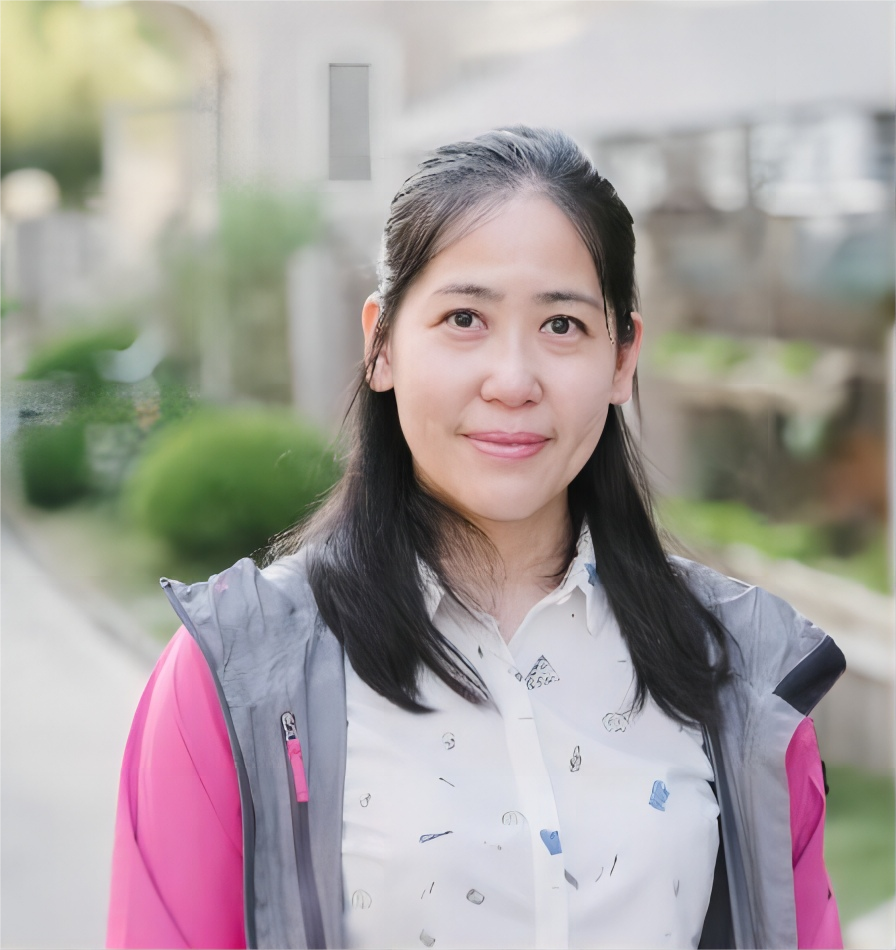
Ms. Ni Huan
Founding Director of Shanghai Green Light-Year
Theme: Green Light-Year’s Approach in Developing CCE Products and the Impact of Youth Leadership in Sustainability
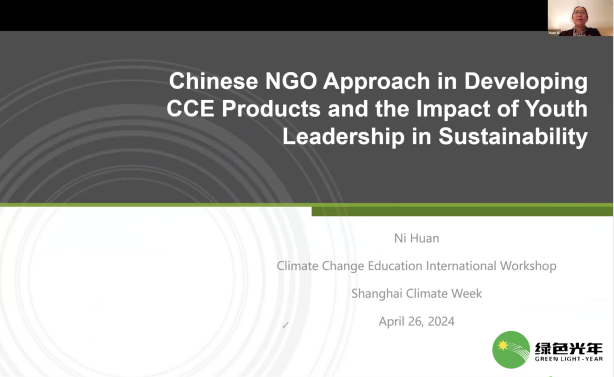

Project-based Learning — An Effective Approach to Cultivating SDG Talents
Green Light-Year designs projects focusing on cognitive, social-emotional, and behavioral changes. Through interdisciplinary project-based learning, it nurtures ten essential skills in today’s youth to tackle future challenges and establishes a long-term learning community. While developing young leaders, it achieves a self-sustaining model for the learning community.

Ms. Cindy Lee
Green Belt Facilitator and Certified Trainer of Climate Fresk China Team
Theme: Climate Fresk: Public engagement and climate education in China
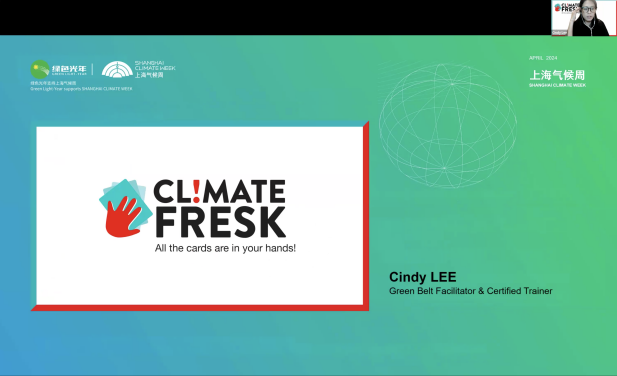

To develop solutions and take climate action, we need to understand the problem first.
Climate Fresk is a set of 42 cards created based on the United Nations IPCC report (World Scientific Reference), allowing the public to explore the causes and consequences of climate change. It effectively enhances team cognition and improves their ability to actively address challenges in corporate sustainable development.

Ms. Zhu Qidi
Co-Founder of Enviroally
Theme: Navigating the Leap: A Transition from Language Major to Environmental Entrepreneurship


Engaging Locally, Impacting Globally
Climate change education should be integrated into educators’ and students’ daily learning, fostering a more proactive citizen consciousness and preparing for future challenges. Efforts are being made to make climate change more than just a topic in the classroom but a lively dialogue guiding students to actively engage, think, and take action.

Ms. Jaimie P. Cloud
Founder and President of Cloud Institute for Sustainability Education
Theme: Educate for a Sustainable Future—Focus on the goal (not the problems), and distinguish the problems from their symptoms
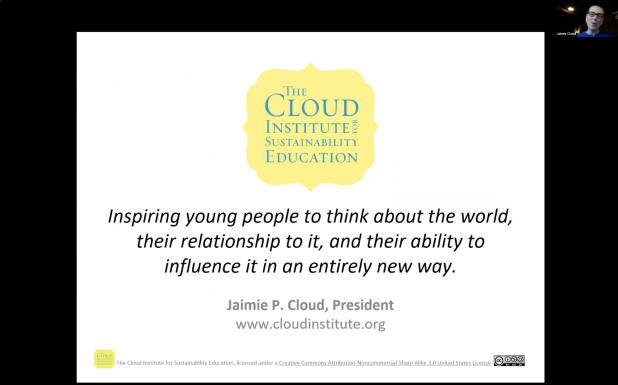
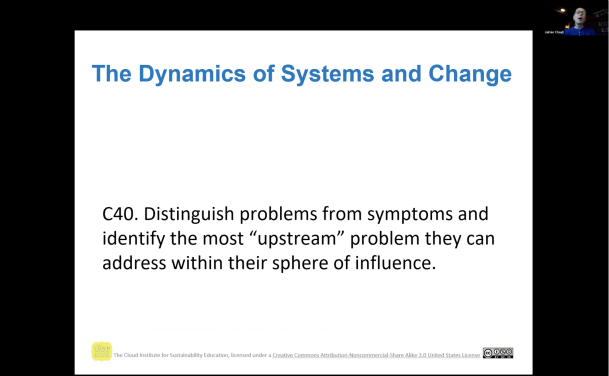
Education practitioners must distinguish between problems and phenomena and establish educational consensus and benchmarks.
Firstly, they must differentiate between problems and phenomena, identifying the upstream problems they can solve and understanding the relationship between “changing phenomena” and “solving problems.” Secondly, education practitioners should collectively establish consensus and benchmark requirements for sustainable development education and integrate them into the curriculum, creating learner-centered sustainable development education.
